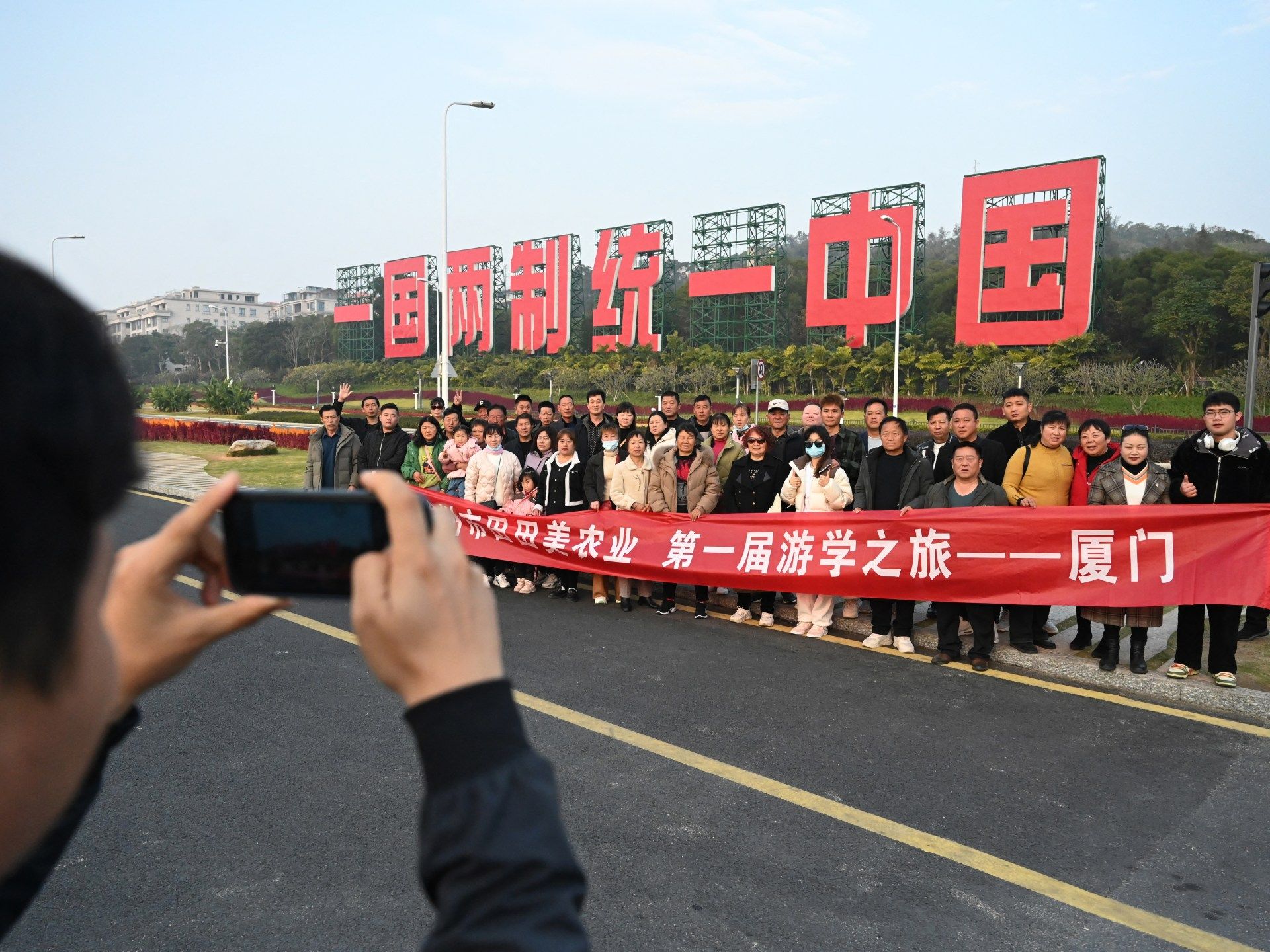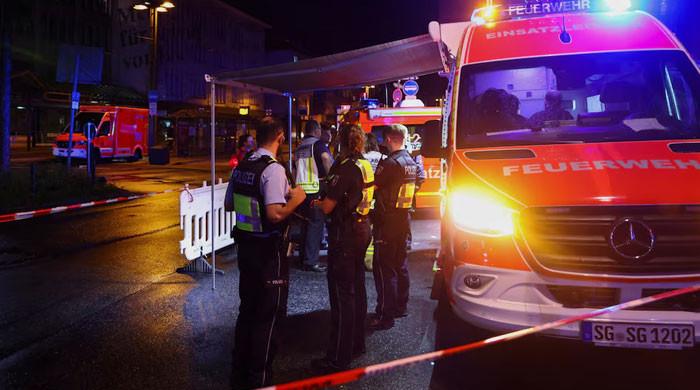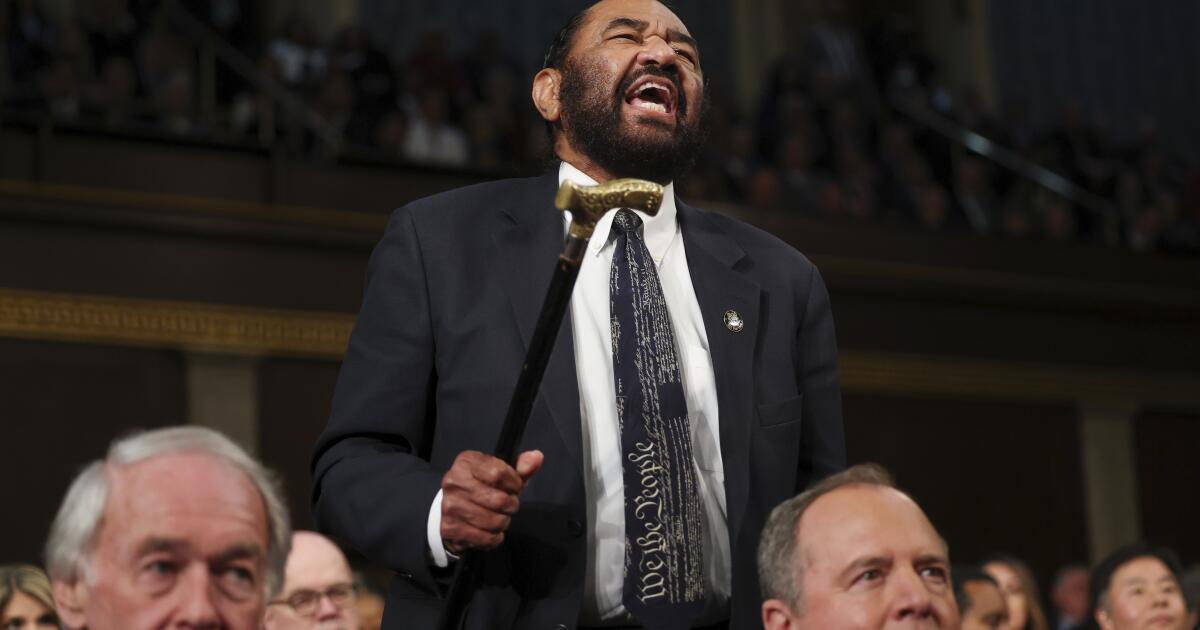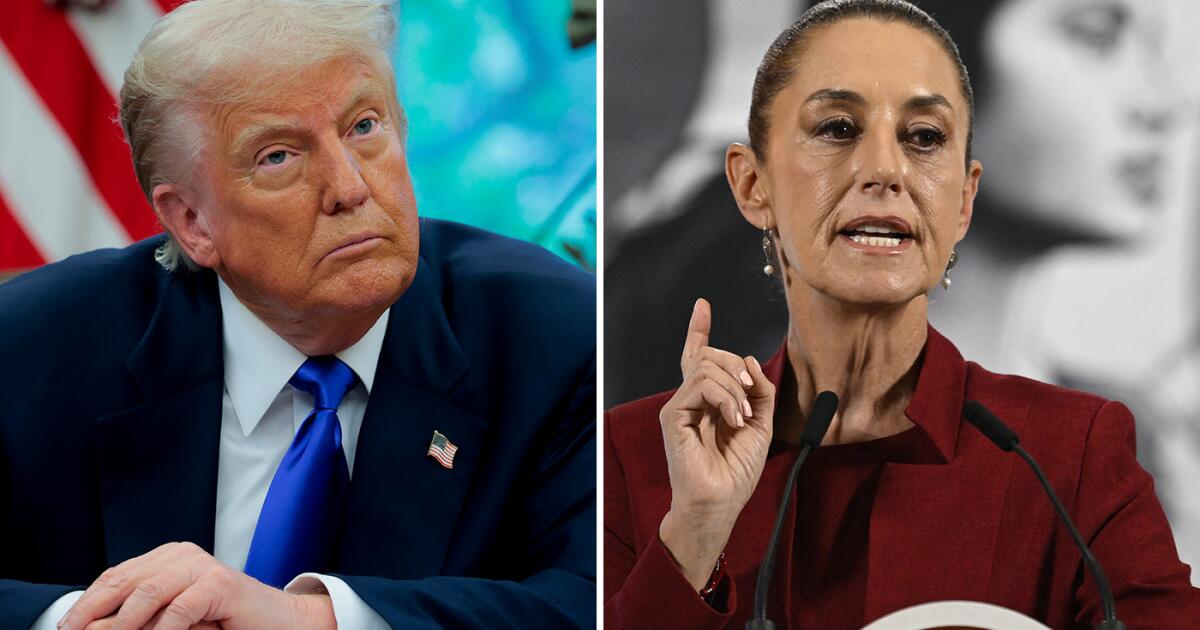“It's hard to imagine that this used to be a war zone,” *Shao Hongtian, 23, told Al Jazeera as he wandered along a beach near the city of Xiamen on China's southeastern coast.
Stopping at the water's edge, where gentle waves lapped the sand, Shao pointed beyond the shoals toward the sea and the Kinmen archipelago, now peaceful, but in the 1940s and 1950s, a battlefield.
The Communists won the Chinese Civil War in 1949 and the Kuomintang (KMT) nationalists fled Beijing for the island of Taiwan. It was on Kinmen, the main island of the archipelago of the same name, less than 10 kilometers (6.2 miles) off the coast of China, that nationalists repulsed repeated Communist invasion attempts, but not before fighting wreaked havoc both in Xiamen as in China. Kinmen.
Kinmen and its outlying islets – some of which lie even closer to the Chinese coast – have been part of Taiwan's territory ever since.
Chinese citizens like Shao were once able to obtain tourist visas to visit the islands, but that ended with the pandemic.
“Kinmen, China and Taiwan are part of the same nation, so it should be possible to visit them, and I hope to be able to do so one day,” Shao said over a video connection, his eyes fixed on Kinmen.
Like Shao, Chinese President Xi Jinping and the ruling Chinese Communist Party (CCP) claim that Taiwan and its territory are part of China.
Xi said in his New Year's speech that China's unification with democratic Taiwan was a “historic inevitability,” and China has not ruled out the use of force to achieve unification. Last year, Xi called on China's military to strengthen its combat readiness.
In recent years, the Chinese military has increased its pressure on Taiwan with almost daily air and sea raids near Taiwan's air and sea space. At times of particular tension, such as during former House Speaker Nancy Pelosi's visit to Taipei, such maneuvers have been accompanied by loud rhetoric and large-scale military exercises.
Capsized ships, recriminations
Recently, tensions have also increased near Kinmen.
In February, two Chinese fishermen died when their speedboat capsized while trying to flee the Taiwanese coast guard when they were discovered fishing “in prohibited waters” about one nautical mile (1.8 km) from the Kinmen archipelago.
Since then, the Chinese coast guard has intensified its activities around Kinmen.
Zhu Fenglian, a spokesman for the Chinese government's Taiwan Affairs Office, said the February incident was “cruel” and noted that the waters were “traditional” fishing grounds for fishermen from China and Taiwan. There were no forbidden waters around Kinmen, he added.
A second capsize was reported on Thursday, and this time China asked Taiwan's coast guard for help.
Standing on the beach looking toward Kinmen, Shao says hostilities are not the way to unite China and Taiwan.
“I want unification to happen peacefully,” he said.
If that is not possible, I would prefer things to remain as they are.
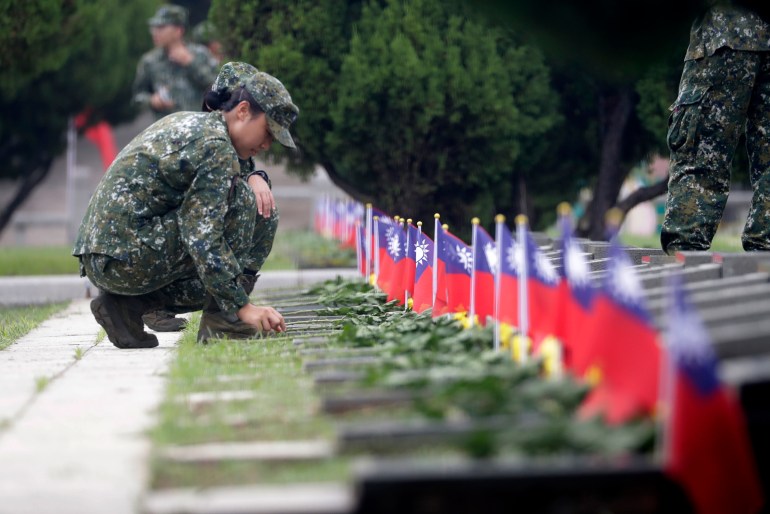
He knows that many of his friends feel the same way. According to Shao, if they go to Kinmen and Taiwan, they should be as visitors, not as combatants.
“The Taiwanese haven't done anything wrong to us, so why should we go there to fight them?” he said, convinced that any war between China and Taiwan would result in significant casualties on both sides. “Unification with Taiwan does not deserve a war.”
No appetite for war
A study published last year by the 21st Century China Center at the University of California, San Diego suggests that Shao and his friends are not the only ones opposed to a war over Taiwan.
The study explored Chinese public support for different policy measures related to unification with Taiwan and found that a third of Chinese respondents considered it unacceptable to launch a large-scale war to achieve unification.
Only one percent rejected all other options except war, defying the Chinese government's claim that the Chinese people were willing to “go to any extreme and pay any price” to achieve unification.
Mia Wei, a 26-year-old marketer from Shanghai, is not surprised by these results.
“Ordinary Chinese people are not putting pressure on the government to achieve unification,” he told Al Jazeera.
“It is the government that pushes people to believe that there must be unification.”
At the same time, support for a unification war turned out to be close to the same level found in similar studies from previous years, indicating that despite rising tension in the Taiwan Strait and renewed talks about taking control of Taiwan , there has been no corresponding increase in support for stronger measures.
Wei believes that Chinese people like her are more concerned about developments within their country.
“First there was COVID, then the economy got worse, and then the housing market got even worse,” he said. “I think the Chinese people think about more important things than unification with Taiwan.”
According to Associate Professor Yao-Yuan Yeh, who teaches Chinese studies at the University of St Thomas in the United States, there is currently little reason for the Chinese people to be more supportive of the conflict with Taiwan.
US President Joe Biden has said on several occasions that the United States will defend Taiwan in the event of a Chinese invasion. At the same time, the United States has been strengthening its military ties with countries such as Japan and the Philippines, Taiwan's immediate neighbors to the north and south.
“There is no guarantee of a quick victory in a war over Taiwan,” Yeh told Al Jazeera.
“In addition, many people in China have business partners, friends and family in Taiwan and therefore do not want the island and its people to come to any harm.”
The study also showed that young Chinese were more reluctant to forceful political measures than previous generations.
“Young people are usually among the first to be sent to the battlefield, so they are naturally more opposed to war,” Yeh said.
Shao, from Xiamen, believes that any hope of victory in a war against Taiwan and its partners will require the mobilization of many young people like him.
“And I think that many young people in China [will] refuse to die in an attack on Taiwan.”
It is not a topic to debate
Regardless of what the Chinese people may think, Taiwan's unification with the mainland will remain a cornerstone of the CCP's narrative, according to Eric Chan, a senior fellow at the Global Taiwan Institute in Washington, DC.
“Unification is not an issue that should be the subject of any kind of debate with the general public,” he told Al Jazeera.

Although Chinese leaders often claim that China is a democratic country where the party is guided by the will of the Chinese people, there are no regular national elections or free media, while online speech is regularly restricted and censored. Speaking out against the CCP can also lead to criminal convictions.
Since Xi became president in 2012, crackdowns on civil liberties have intensified, and Xi has centralized power around himself to a degree unprecedented since the rule of Mao Zedong, the man who led the communists to victory against the Nationalists and became the first leader of Communist China.
During Mao's rule, reforms and purges of Chinese society led to the deaths of millions of Chinese, while more than 400,000 Chinese soldiers died as a result of their decision to enter the Korean War (1950-1953) on the side of Mao. North Korea.
But according to Chan, the days when a Chinese leader could waste tens of thousands of lives in this way are long gone.
Recent government actions that took a heavy toll on citizens sparked a public backlash, and Xi did not appear immune.
During the COVID pandemic, Xi fervently defended the country's zero-COVID policy, even though mass testing and strict lockdowns had dire socioeconomic consequences. The government finally abandoned the policy as the economy tanked and people took to the streets in China's major cities demanding an end to lockdowns, and even calling for Xi to resign.
As for war, the circumstances are also different. Unlike, for example, the Sino-Indian War of 1962 and the Sino-Vietnamese War of 1979, a battle for Taiwan would be existential for the Communist Party and Xi, according to Chan.
“The party (PCC) would not have been threatened by a loss or a large number of casualties in those wars,” he said.
Today, Xi would have to assume that such losses would be unacceptable to the Chinese people, he added.
Public outrage over a long unification war that could even end in Chinese defeat could, in Chan's view, jeopardize the party's rule.
Aware of the mood of the Chinese people, Chan sees the CCP instead continuing to engage in low-cost gray zone operations against Taiwan while developing a Chinese military that could achieve a quick victory.
For Shao, however, any attempt to resolve the issue through conflict would be a disaster.
“I don't think this will end well for anyone, neither for those who have to fight against it nor for the government that started it,” he said.
*Shao's name has been changed to respect his wish for anonymity given the sensitivity of the topic.

